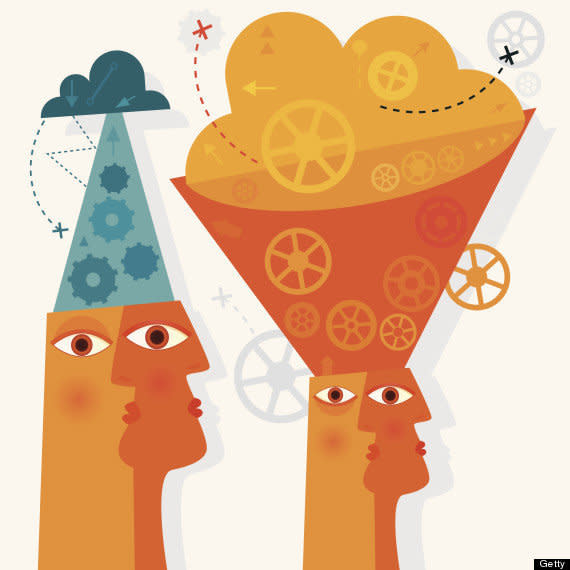16 Honest Tweets All Introverts Need To Read Right Now
If you’re an introvert, you value your alone time. You tend to think before you speak. You’d much rather socialize one-on-one than in a group. A phone call is probably your worst nightmare. But most of all, you are silently strong.
It can be tough to prefer being alone in a world that values gregariousness and sociability. But take heart, quiet types: Twitter has your back. Each month, we round up spot-on tweets that capture what it’s like to be an introvert. Scroll down for our latest batch.
1.
Noah was probably an introvert. pic.twitter.com/ZcUdF4zQJ6
— Introvert Life (@IntrovertLiving) March 24, 2019
2.
You know you're an #introvert when you walk into a coffee shop and choose your table based on who looks like a talker.
— Jenn Granneman (@JennGranneman) March 16, 2019
3.
True friendship 😂#introvert #introvertlife #introvertproblems pic.twitter.com/yyKUMrxc0D
— Introvert, Dear (@IntrovertDear) March 22, 2019
4.
Love HuffPost? Become a founding member of HuffPost Plus today.
I wish every company had a librarian. How great would it be to have a designated person to shush all the noisy people? #introvertlife #introvertproblems
— Introvert's Guide to Life (@IntrovertsGTL) March 26, 2019
5.
For introverted people, the phone function on their phone is the least appealing feature
— Shower Thoughts (@TheWeirdWorld) March 12, 2019
6.
There is a significant correlation 🤓 pic.twitter.com/Eg4vj3p2JJ
— Marzi (@IntrovertDoodle) March 22, 2019
7.
Nothing worse than having a talker sitting next to you on an 8AM flight. #IntrovertProblems
— Joelle Messianu (@joellemessianu) March 27, 2019
8.
Literally bailed on a date tonight so I could go sit at my favorite spot alone and read. So that's where I am in life #introvertproblems
— Savannah Dent (@Savannahmdent) March 8, 2019
9.
#Introvert
As an introvert I get more enjoyment from being invited to a party than I do from attending the party. 😁— Kapil Londhe (@londhe_kapil) March 26, 2019
10.
I DM’d someone asking if they want to get dinner and Twitter locked my account for unusual activity. #IntrovertProblems
— simine vazire (@siminevazire) March 14, 2019
11.
Too true. 🌻🤗 #introvert #socialanxiety pic.twitter.com/RxuRwiuJBV
— Becca at Missing In Sight 🌻 (@missinginsight) March 26, 2019
12.
How many introverts does it take to change a lightbulb?
Me: Does it have to be a group activity?— J🐉C (@theDRaGnrebOrN) March 22, 2019
13.
Every room is an escape room when you're an introvert.
— Joel (@FloriduhBrewer) March 18, 2019
14.
uber should take 25% off every time you get a driver with a “Known for great conversation”
— anna (@scannadalous) March 28, 2019
15.
i love when ppl cancel plans so i don’t have to be the one that cancels🥰
— bren (@brendalyyyy) March 23, 2019
16.
It always takes me a while. And when I'm tired, I just shut down. #introvert #introvertproblems pic.twitter.com/n4077I38qQ
— INFJoe (@INFJoe) March 28, 2019
2. Introverts don't like to be around people.

3. Introverts don't make good leaders or public speakers.

4. Introverts have more negative personalities.

6. It's easy to tell whether someone is introverted or extroverted.

This article originally appeared on HuffPost.

